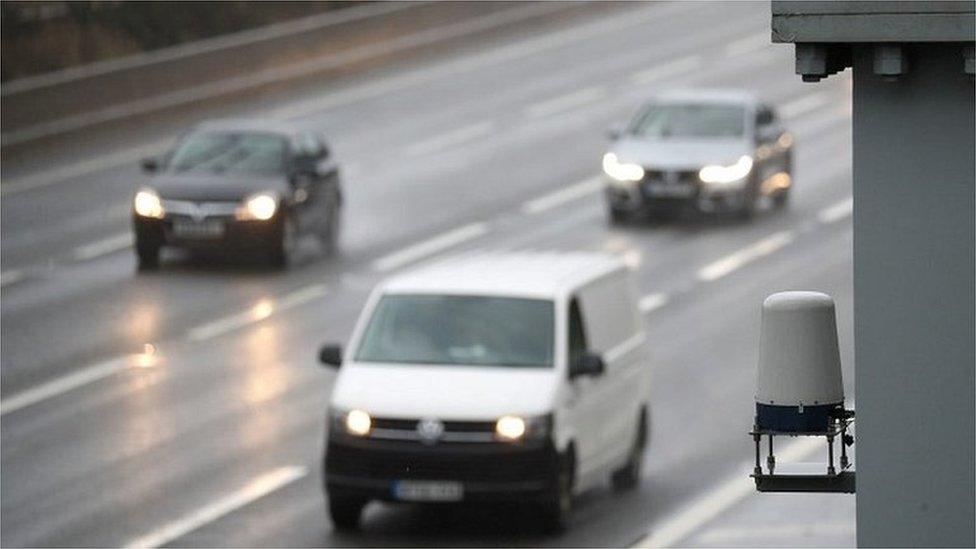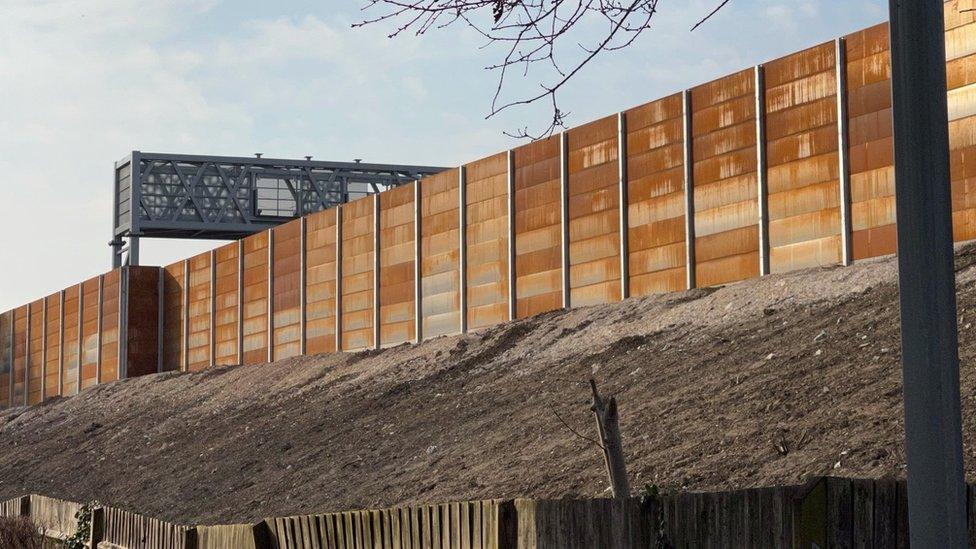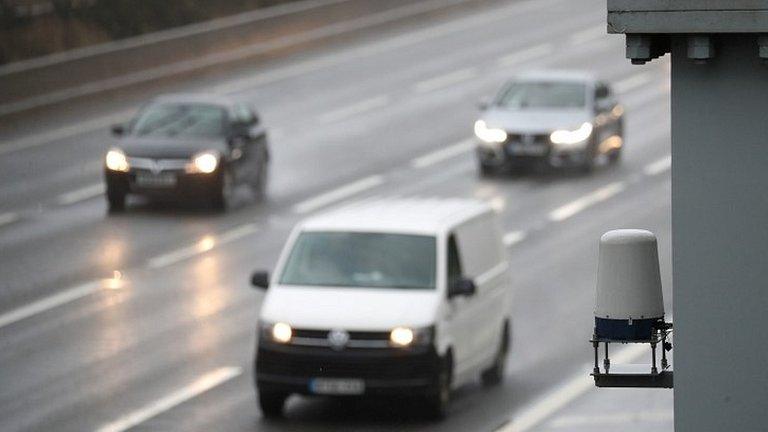M27 smart motorway plan delayed by additional safety measures
- Published

The government announced that no new ALR motorways would be opened without radar-based stopped vehicle detection (SVD) technology
Work to make the M27 a so-called smart motorway, without hard shoulders, will be delayed following a government demand for additional safety measures.
Any new "all lane running" (ALR) roads will now need radar technology installed first to detect stopped cars.
Ongoing works to make the M27 in Hampshire a smart motorway between junctions four and 11 were due to be completed during the summer.
Highways England said the project had "gone back to the design phase".
Smart motorways use technology and other measures to cut congestion, such as opening the hard shoulder.
There have been concerns about their safety after fatal accidents involving stationary cars being hit from behind.
Transport Secretary Grant Shapps announced that no new ALR motorways would be opened without radar-based stopped vehicle detection (SVD) technology to spot stopped vehicles and enable lanes to be closed where necessary.
Other measures include upgrading cameras so motorists ignoring closed lanes indicated by red X signs can be caught and putting more signs up about distances to emergency refuge areas.
In a statement Highways England: "We are near to the completion of the upgrade to the M27, and have committed to implementing the recommendations of the Government stock-take before the scheme opens fully.
"This means it will include stopped vehicle detection technology."
It added the upgrade was expected to be fully completed later in the year.

Follow BBC South on Facebook, external, Twitter, external, or Instagram, external. Send your story ideas to south.newsonline@bbc.co.uk, external.
Related topics
- Published20 April 2021

- Published10 March 2021

- Published26 February 2021
